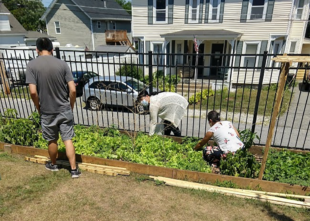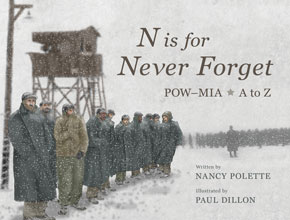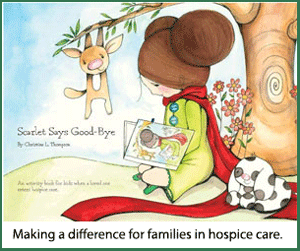Born into the terror and deprivation of the Cambodian genocide, in a time when having some control over the family’s diet was key to survival, Phakdey Yous knows intimately the importance of access to food. “If you can take control of what you eat, you have more control of your life,” she says. Today, she is part of a project documenting how her local community is doing just that.
Phakdey’s mother, a seamstress who was forced to sew the famous black garments worn by the Khmer Rouge, became pregnant with her during the genocide, which lasted from 1975 to 1979. Risking punishment of death, she sneaked out into the rice paddies at night to make sure her growing baby had enough sustenance in utero.
The family eventually managed to escape the killing fields of Cambodia, keeping Phakdey, who was then a babe in arms, from crying out while they hid from soldiers and bandits by drugging her with cough syrup. The family followed a stream of desperate refugees who escaped first to camps in Thailand and from there, often years later, on to the United States, Canada, Australia, and other safe harbors. Today, a result of decades-long chain migration, Lowell, Massachusetts, has one of the largest Cambodian refugee populations in the United States.
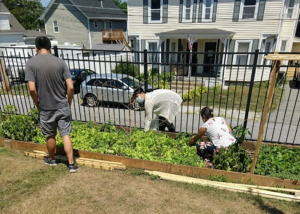
Seeds tell stories. For many of the refugees, growing, preparing, and sharing food has become a source of tremendous comfort and pride—a reminder of their strength and resiliency in escaping the killing fields of Cambodia and of their personal family stories. Photo courtesy of Phakdey Yous and Kristin Strobel.
Phakdey’s parents eventually joined their large, extended family in Lowell and opened a small grocery store. Her father went on to get a Masters of Arts in Social Work, and Phakdey followed his footsteps into the field. She is now a school psychologist at the Lowell Public Schools. It was at the school that Phadkey met Kristin Strobel, a high school world history teacher eager to learn more about her Cambodian neighbors. Kristin had noticed the gardens flourishing in her once industrial city and wanted to learn more about the people who grew them. The two have since teamed up on a writing and photography project to document the stories of the Lowell Cambodian community as well as the significance of the gardens they grow.
One of those stories is told by Sokmuoy Li, now a grandmother, who was fifteen years old when life as she knew it ceased to exist. The year was 1975 and Pol Pot and his Khmer Rouge, with the support of communist China, had seized power in her native country. They pursued their goal of turning Cambodia into a socialist agrarian republic by forcibly emptying the cities and executing anyone with ties to the previous government or the professional class. Even wearing eyeglasses, which was assumed to signify intellectual tendencies, put a person’s life at risk. The genocide would eventually result in the deaths of nearly a quarter of the Cambodian population.
Like most urbanites, Sokmuoy was expelled from her home in the capital city of Phnom Penh and relocated to a labor camp in the countryside, where she endured squalid conditions and was made to work long hours to provide food for the Khmer Rouge soldiers. She was allowed to eat nothing from the gardens she tended for fear of death. Instead, she survived on watercress and a meager ration of watered down rice porridge—the Khmer Rouge would use only three or four cups of rice to feed 30 to 40 people. Those who did not die from torture often fell victim to starvation and malnutrition. Even potable water was scarce; the only freshwater she was able to access came from what she managed to squeeze out of a towel she used to soak up rainwater collected in the footprints left behind by water buffalo. She lived with constant hunger, thirst, and fear.
Sokmuoy is still haunted by the memory of a mother working near her in the fields with her one-year-old baby strapped to her back. The baby, perhaps out of hunger or perhaps mere curiosity, reached up to pick a vegetable. The Khmer Rouge soldiers guarding the workers killed him immediately, and there was not a thing she could do but stand by and watch in horror. Even today, in the safety of her new home near Boston, Sokmuoy is sometimes overcome by fear that she, too, will be executed for the simple act of growing food. She often has to remind herself that she is safe in her own garden, a place where she can eat everything she grows without fear of reprisal.
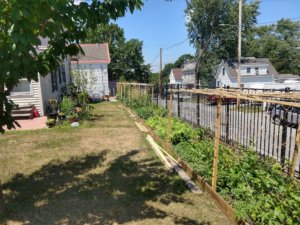
Gardeners plant wherever they can—alongside fences, in back yards, front yards, and sometimes even digging up concrete to replace it with a vegetable bed. Photo courtesy of Phakdey Yous and Kristin Strobel.
For Sokmuoy and many other home gardeners in the community, growing, preparing, and sharing food has become a source of tremendous comfort and pride. Many Cambodian families maintain large stocks of food, consciously or subconsciously afraid that the food supply will run out. When the pandemic hit, Phakdey says, they turned to their gardens both for sustenance and security. Living in multi-generational households, with grandparents, aunts and uncles, and cousins all sharing the same living space, and often working in jobs deemed “essential,” it was impossible to fully shelter the most vulnerable among them from the dangers of the virus. Leaving the safety of home to earn a paycheck may have been a necessary risk, but when it came to food, at least, these families had most of what they needed right outside their own doors.
Often these gardens, which Kristin describes as “amazingly productive, lush kitchen gardens tucked into front yards, side yards, and back yards: wherever the soil can be turned,” tell their own story of triumph over adversity. Even in areas with little growing space, places with no grass and only a little dirt, the refugees find a way to garden, breaking up concrete driveways and patios to expand their gardens. Nothing is wasted. Plants are grown in recycled containers. An elderly gardener who worked for years as an electrician uses old telephone wires to support his long beans; you might also find shower rods and old plastic bottles repurposed into garden stakes and trellises. The gardens include as many of the ingredients for the community’s traditional foods as the New England growing climate will permit: Thai chilis and purple eggplant (a vestige of their time in the Thai refugee camps), cucumbers, Kaffir lime (whose thorny bushes have to be taken inside during the winter months), lemongrass, long purple beans, water spinach, kabocha squash, and bitter melon.
For Sokmuoy, growing bitter melon is especially meaningful. When the genocide finally ended and she was fortunate enough to be reunited with her parents, the family had nothing; even their former home in the capital had been occupied by strangers. They were, however, able to get a few melon seeds and found a small plot of land on which to grow them. The melons grew quickly, and the family mixed the fruit into their rice for added nutrients. Now that she has a life of relative abundance in Lowell, the melon is a reminder of how it sustained her family throughout that period of extreme deprivation. Today, Sokmuoy harvests the bitter melon she still grows every season to make Vietnamese Sour Soup, the ingredients for which—herbs, tomatoes, melon, and greens—are all grown in her own backyard. There is always enough to feed a crowd.
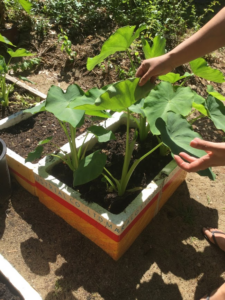
Taro is a tropical plant commonly grown as a root vegetable. It is considered one of the most ancient crops in history. Photo courtesy of Phakdey Yous and Kristin Strobel.
Phakdey and Kristin launched their project as their working-class community was being ravaged by COVID-19, in part as a way to safely stay connected to the community even during a time requiring social distancing. As the weather turned colder, gardeners were forced indoors, and the pair’s work at school became even more demanding with the added pressures of distance learning, so they put their project on temporary hold. Now that life is returning to something a little closer to normal and residents are beginning to venture back out into their gardens, they hope to resume their interviews.
Phakdey and Kristin are all too aware of the need to capture these stories now, while they have the chance. Those who survived the genocide are no longer young and many have recently been lost. Phakdey’s own father-in-law, who they were hoping to interview soon, recently succumbed to an aggressive form of cancer. “It’s a reminder of how fleeting these moments are and how quickly these stories can be lost,” Kristin says. She and Phakdey will first mourn the loss and then, when the time is right, they will get back to work: collecting stories, as their neighbors gather their crops.
Jessica Redmond is the author of A Year of Absence: Six Women’s Stories of Courage, Hope, and Love. She is a freelance writer and the founder and owner of Storyteller LLC, a memoir and ghostwriting service focusing on helping others tell their most meaningful stories.
This article was first published June 2021.

